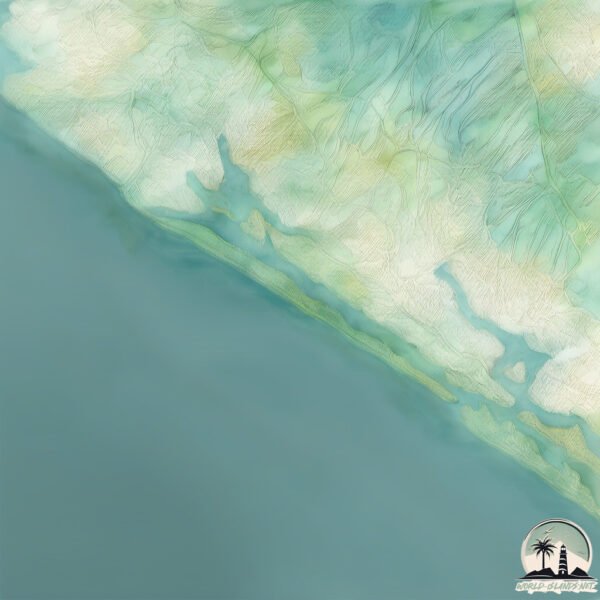Quevedo

Welcome to Quevedo, a Dry island in the Gulf of California, part of the majestic Pacific Ocean. This guide offers a comprehensive overview of what makes Quevedo unique – from its geography and climate to its population, infrastructure, and beyond. Dive into the details:
- Geography and Size: Explore the island’s size and location.
- Climate and Weather: Weather patterns and temperature.
- Topography and Nature: Uncover the natural wonders of the island.
- Infrastructure and Travelling: Insights on reaching, staying, and making the most of your visit.
- News and Headlines: Latest News.
Geography and size of Quevedo
Size: 21.8 km²
Coastline: 48.8 km
Ocean: Pacific Ocean
Sea: Gulf of California
Continent: North America
Quevedo is a Medium Island spanning 22 km² with a coastline of 49 km.
Archipel: –
Tectonic Plate: North America – Covers North America and parts of the Atlantic and Arctic Oceans, characterized by diverse geological features and varying levels of seismic activity.
The geographic heart of the island is pinpointed at these coordinates:
Latitude: 24.18528409 / Longitude: -107.31912127
Climate and weather of Quevedo
Climate Zone: Dry
Climate Details: Hot Semi-Arid (Steppe) Climate
Temperature: Hot
Climate Characteristics: Features hot summers and mild to warm winters. Receives more rainfall than hot deserts but less than tropical savannas, leading to a somewhat more varied landscape.
Topography and nature of Quevedo
Timezone: UTC-07:00
Timezone places: America/Denver
Max. Elevation: 3 m
Mean Elevation: 0 m
Vegetation: Shrubland
Tree Coverage: 47%
The mean elevation is 0 m. The highest elevation on the island reaches approximately 3 meters above sea level. The island is characterized by Plains: Flat, low-lying lands characterized by a maximum elevation of up to 200 meters. On islands, plains are typically coastal lowlands or central flat areas.
Dominating Vegetation: Shrubland
Dominated by shrubs and small bushes, these areas are typical in dry, rocky, or sandy environments, as well as in regions with poor soil fertility. Quevedo has a tree cover of 47 %.
Vegetation: 12 vegetation zones – Exceptionally Diverse Island
Islands with more than ten vegetation zones are among the most ecologically rich and varied in the world. These islands are akin to miniature continents, boasting an incredible array of ecosystems. The sheer range of habitats, from high peaks to deep valleys, rainforests to deserts, creates a mosaic of life that is unparalleled. They are crucial for conservation and ecological studies.
Infrastructure and Travelling to Quevedo
Does the island have a public airport? no.
There is no public and scheduled airport on Quevedo. The nearest airport is Bachigualato Federal International Airport, located 58 km away.
Does the island have a major port? no.
There are no major ports on Quevedo. The closest major port is MAZATLAN, approximately 133 km away.
The mean population of Quevedo is 12 per km². Quevedo is Gently Populated. The island belongs to Mexico.
Continuing your journey, Talchichilte is the next notable island, situated merely km away.
Myke Towers & Quevedo - SOLEAO (Official Music Video)



Mexico is classified as Emerging region: MIKT: Mexico, Indonesia, South Korea, and Turkey – Economies recognized for their development potential and emerging market status. The level of income is Upper middle income.
News – Latest Updates and Headlines from Quevedo
Stay informed with the most recent news and important headlines from Quevedo. Here’s a roundup of the latest developments.
Please note: The data used here has been primarily extracted from satellite readings. Deviations from exact values may occur, particularly regarding the height of elevations and population density. Land area and coastline measurements refer to average values at mean high tide.
